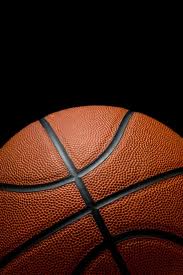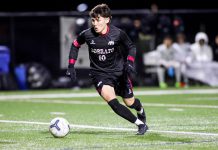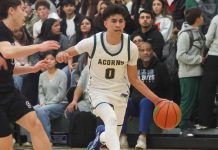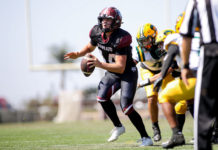The story goes that seldom-used guard Adolph Rupp asked to hold the ball in one of his Kansas team photos from the early 1920s.
“Grandpa said, ‘Sure, Adolph, but why?’ said Mark Allen, the grandson of Rupp’s coach, Phog Allen.
“Because,” Rupp is said to have responded, “It’s the only time you’ll let me touch the ball.”
This is where the Kansas-Kentucky connection begins, in black-and-white team photograph days.
Monday night, college basketball’s classic programs intersect at the top for the first time in the history of the sport they helped write.
The Wildcats, with 2,089 victories, rank first on college basketball’s all-time scoreboard. The Jayhawks, with 2,070, rank second.
Kentucky owns seven NCAA trophies, Kansas three. All-Americans, Olympians, legendary coaches, countless conference championships – the list of achievements runs long. The teams both play in buildings named for Jayhawks, Allen Fieldhouse and Rupp Arena.
Kansas begins as the game’s roots, and Kentucky popularized the game.
James Naismith got the ball rolling at Kansas, and it can be argued that Kentucky turned the nation on to the sport after Rupp arrived and created a powerhouse team during the Great Depression.
For the first time, radio brought sports news into America’s homes, and the Wildcats’ success spread into households coast-to-coast.
Together, Kentucky and Kansas maintained excellence over the decades, and here they are in the Superdome, 40 minutes for the national championship.
Kansas coach Bill Self even caught himself looking ahead. All coaches do it, but few ever admit it.
“I dreamed about it as soon as I saw the brackets,” Self said. “I did look. I said, ‘How cool would it be to play Kentucky in the finals?’ “
Or, in other eras, how rad, groovy or swell? Kentucky-Kansas works in any generation, and somehow — almost remarkably — they’ve never met for a national championship. The Jayhawks have collided with other bluebloods in title bouts — Indiana, North Carolina and Duke. The Wildcats have battled the Blue Devils and UCLA, among others, on the final night.
Monday night’s game, which tips off at 8:23, marks only the third NCAA Tournament meeting between the programs, and both of the others were in the round of 32. The Wildcats won in overtime in 1999; the Jayhawks won in 2007.
As for this one, the players have enough on their minds without delving into history’s specifics.
“We know both programs have had success through the years,” Wildcats freshman guard Marquis Teague said.
Players live in the moment, and based on the NCAA Tournament paths of both schools, this one seems to be headed one of two directions.
Kentucky will win with room to spare, or Kansas’ habit of living on the edge will continue for a final pulsating occasion.
In three of their five tournament victories this year, the Jayhawks have trailed by at least eight points. Their biggest comeback occurred in Saturday’s 64-62 national semifinal victory over Ohio State, a game in which the Jayhawks trailed by 13 points in the first half.
Kansas’ five tournament games are the longest stretch of the season in which the Jayhawks haven’t shot 50 percent as a team. All-American Thomas Robinson hasn’t had a game in which he’s made at least half of his shots. Point guard Tyshawn Taylor has missed 23 straight three-pointers dating back to the Baylor loss in the Big 12 tournament semifinals.
Yet, the Jayhawks are clicking in so many other ways, starting with defense.
As poorly as Kansas is shooting, opponents have been worse. Part of that has been the play of center Jeff Withey, whose seven blocked shots against the Buckeyes pushed his NCAA Tournament total to 27, two short of the record for a single tournament.
No team has scored more than 67 points against KU in the tournament, and none has shot better than 44 percent.
When games reach critical junctures late, Kansas has made the plays: a steal and drive by Travis Releford against Ohio State; a Withey block and tap to Taylor against North Carolina; an Elijah Johnson layup against North Carolina State and his three-pointer against Purdue.
“Our guys have done a good job of performing the way you have to for giving yourself a chance to win in the last 5 minutes,” Self said.
Whereas sixth-ranked Kansas, 32-6, has won its NCAA games by a seven-point average, top-ranked Kentucky, 37-2, has reached this point by beating tournament opponents by a 12.6-point margin. The Wildcats put away rival Louisville 69-61 on Saturday and won their four other NCAA games by double-digits.
Kentucky is led by the nation’s top player in forward Anthony Davis, who has averaged 15.2 points, 11.6 rebounds and 4.6 blocks per tournament game.
Robinson doesn’t figure to spend much time guarding Davis – “that will be Withey’s job” – but he said the Jayhawks are ready for the challenge.
“We just have to be Kansas,” Robinson said. “Do what we do best: Keep being aggressive.”
In the teams’ regular-season meeting, on Nov. 15 in New York, Davis had 14 points to Robinson’s 11. Kentucky’s 75-65 victory was typical – all five starters reached double figures in scoring.
The coaching matchup also is intriguing. Self and Calipari have a common Kansas background. Calipari was a volunteer on the final staff of Ted Owens in 1983 and remained on board for two years when Larry Brown took over that season.
When Calipari left, Self assumed the role for a year. Their coaching paths famously clashed in the 2008 national championship game, when the Jayhawks beat Calipari’s Memphis Tigers for the title after KU’s Mario Chalmers sent the game into overtime with a last-second three-pointer.
“I have great memories of Lawrence, Kansas,” Calipari said. “Not particularly of that game.”
A victory Monday night would be Self’s second NCAA title, and he’d become the school’s first multiple-tournament championship coach. It would be Calipari’s first, and he’d join Kentucky’s list of championship coaches: Joe B. Hall, Rick Pitino, Tubby Smith and Rupp.
In 1923, Rupp was a senior on the Kansas team that was retroactively chosen the nation’s best team by the Helms Foundation. Rupp never started. He was part of the squad of reserves that called themselves the “meat packers.”
Rupp was the only member of that team to go into coaching, and when the 1923 team held reunions, he returned to Lawrence when he could.
Allen died in 1974, and his grandson, Mark, said it was a nice surprise when Rupp arrived for the funeral.
“This tall man walked up and I wasn’t sure who it was at first,” Allen said. “It was Adolph Rupp, the legend.”
On that day, Kansas and Kentucky had reconnected, as they will Monday night on the biggest stage.








